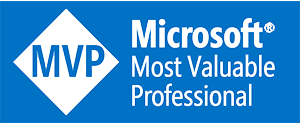2015 retrospective
It’s a small post with an overview of the articles I wrote during this year.
Early exit is a tail call optimization of procedural languages
A couple of days ago, a nice analogy came to mind which I thought would be an interesting one to share: early exit is essentially a tail call optimization of procedural languages. Let’s see how it is so.
C# regions is a design smell
Regions feature in C# is frowned upon by many. There are good reasons for that. In this post, I’d like to discuss why exactly you should avoid using them.
Do you need an ORM?
Do you need an ORM for your project given you use a relational database? And not just some lightweight like Dapper but a big one: NHibernate, Entity Framework, Hibernate? I’d like to address this question with this post.
Domain-centric vs data-centric approaches to software development
In this post, I’d like to make a comparison of two approaches that prevail in the world of (mostly enterprise) software development: domain-centric and data-centric. If you read my last post (or any other post, quite frankly), you might have noticed I personally gravitate towards the domain-centric approach. Although this article is intended to be an impartial one, keep in mind that my bias can leak out. Domain-centric vs data-centric approaches The main difference between the two approaches is in the way people adhering to them treat software.
Is SQL a good place for business logic?
<TL;DR> No, it isn’t. While SQL is a Turing-complete language and we can use it to encode any business logic we want, placing business (domain) logic into SQL leads to a less maintainable solution comparing to one that uses an OO or functional language. Because of that, I advocate to limit the use of SQL to read-only queries (which can potentially contain business logic, that’s fine) and simple CRUD statements where possible.
SQL vs NoSQL: you do want to have a relational storage by default
The concept of NoSQL databases has been around for a while, but there still are quite a few misunderstandings regarding the topic of relational SQL vs NoSQL databases. In this post, I’d like to clarify the most common misconceptions and discuss the primary use cases for each of them.
Stages of competence: 2 ways of learning
When you enter some field as a novice, there is a lot of stuff you must learn in order to become proficient in it. The learning path can usually be broken down into 4 stages of competence which you can traverse in 2 different ways.
Most valuable software development principles
I’d like to wrap up the "Most valuable software development principles" article series with this post.
Making implicit assumptions explicit
Another software development principle I advocate you follow is making implicit assumptions explicit in your code. Let’s see what that means.



